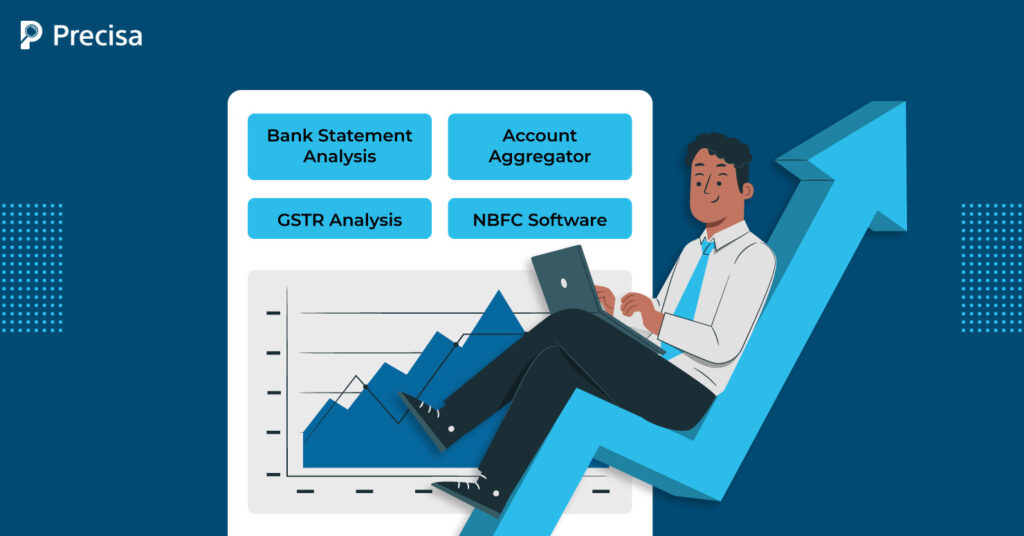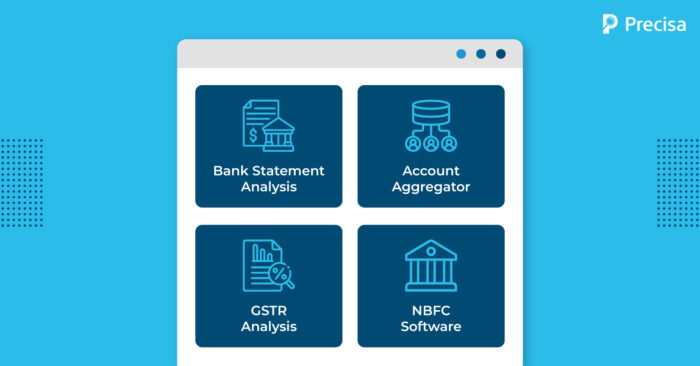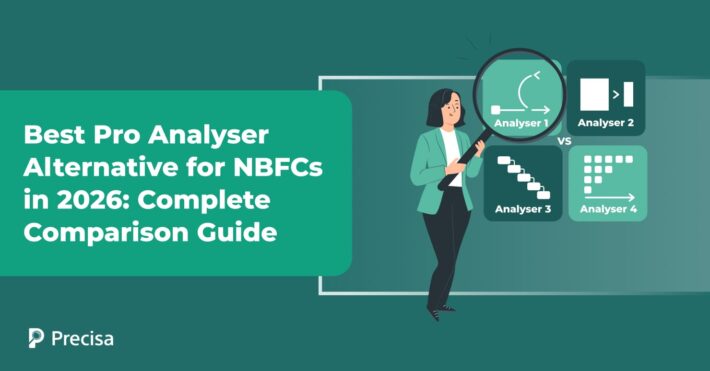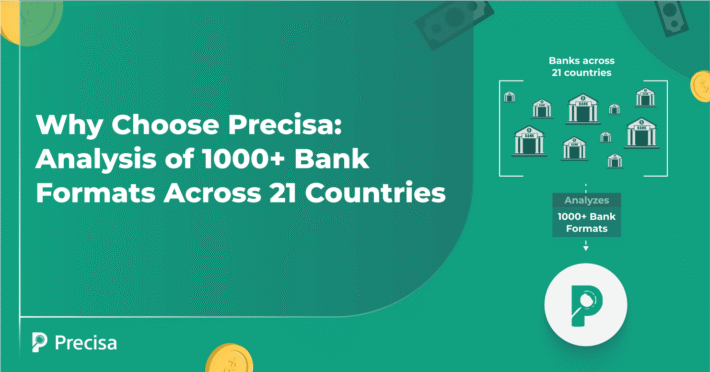Driving Innovation in Financial Startups: Leveraging Precisa’s Advanced Analytics Tools

In today’s constantly changing financial landscape, startups are faced with the challenge of staying ahead of the competition. 90% of companies fail, underlining the necessity for innovative strategies to survive and succeed in the market. The use of sophisticated analytics tools has become a potent strategy for fostering innovation and achieving a competitive edge.
A Gartner poll indicates that 70% of financial services companies view advanced analytics as crucial to their business goals. Additionally, according to a Pricewaterhouse Coopers (PwC) report, businesses that use advanced analytics beat their competitors by 6% in profitability and 5% in productivity.
In this blog post, we explore how Precisa’s cutting-edge analytics platform stands out as a game-changer for financial startups. Startups can enhance their decision-making, uncover new opportunities, and alter their business processes by utilising the power of Precisa’s sophisticated analytics solutions.
Precisa Advanced Analytics Tools for Financial Startups
Advanced analytics tools for financial startups refer to sophisticated applications and methods to gather, analyse, and interpret vast amounts of financial data to gain insightful knowledge and make wise business decisions.
These technologies use innovative algorithms, statistical models, machine learning (ML), and artificial intelligence (AI) to find patterns, trends, and correlations in financial data.
Powered by such technology, Precisa’s advanced analytics tool enables financial startups to improve financial forecasts, risk assessment, fraud detection, and predictive modelling.
By enhancing operational effectiveness and reducing possible risks in a dynamic and complicated financial sector, advanced analytics technologies enable financial startups to achieve a competitive edge.
Precisa’s Advanced Analytics Tools for Financial Startups
The following are some of the advanced analytics tools of Precisa:
1. Bank Statement Analysis
Software algorithms are used in automated bank statement analysis to extract and classify transaction data from bank statements.
Financial startups can use this technology to evaluate the financial situation of those they serve and make rational decisions. The software categorises transactions by extracting information from statements such as transaction date, amount, payee, and category.
a. Improved Customer Experience
Automated bank statement analysis that expedites loan approval increases customer happiness with the loan application process, enhancing customer acquisition and retention.
b. Enhanced Efficiency
Automated software allows loan applications to be processed more quickly and accurately, frees up people working on other projects and boosts operational effectiveness.
c. Improved Compliance
Automated bank statement analysis software assists banks and financial institutions in adhering to loan application standards and meeting regulatory requirements by providing essential financial history data for creditworthiness assessment. This helps them avoid regulatory fines and penalties.
d. Cost-Savings
Automated bank statement analysis lowers the cost of processing loans by eliminating the need for manual evaluation and processing. This is because software is faster and more accurate than human techniques
2. Account Aggregator
Account aggregator offers a consolidated view of individuals’ and businesses’ financial information. This transforms how consumers access their financial data by including tax returns, account statements, etc.
Account aggregator integration is an effective process for financial startups to standardise access to a customer’s financial information. It acts as a third party whose primary objective is to combine and compile information from several accounts that customers maintain at different financial institutions.
a. Enhanced Security
Integrating account aggregators is essential for addressing data privacy issues and guaranteeing consumer data security. Financial startups make considerable investments in protecting financial data by implementing robust security measures in place through integration. Integration help strengthens the overall security of the financial ecosystem by preventing breaches and unauthorised usage.
b. Quick Access to Financial Information
Account aggregation allows instant retrieval of financial data, reducing the need for time-consuming methods. By providing such convenience, financial startups build loyalty and develop strong relationships with customers who often prioritise financial institutions offering easy access to their data
3. GSTR Analysis
GSTR analysis helps financial startups identify discrepancies in tax calculations and rectify errors, decreasing penalties. Additionally, it offers perceptions into earnings, costs, and tax obligations, assisting in making wise choices for increased organisational productivity and profitability.
GSTR analysis ensures compliance while giving financial startups useful business performance insights. Financial startups can proactively manage compliance, reduce risks, and preserve a positive market reputation by utilising GSTR analysis.
a. Accuracy in GST Filings
Financial startups must file their GST returns accurately and on time to avoid penalties and legal repercussions. These startups can assure correct GST liability estimation and proper claim of input tax credits during return filing by using GSTR analysis.
b. Error Detection
By analysing GSTR data, financial startups can identify errors like inaccurate tax computations or incorrect input tax credit claims. Correcting these errors promotes compliance and helps maintain compliance and avoid penalties.
c. Business Performance Insights
GSTR analysis offers insightful information on the operation of financial startups. These companies can assess the benefits and drawbacks of various market sectors by looking at GSTR data, allowing them to make well-informed decisions about their operations and business strategy.
d. Better Compliance Management
GSTR analysis gives financial startups the tools to better manage their GST compliance. Startups can take corrective action to guarantee adherence to GST rules and regulations by identifying areas of non-compliance. This proactive strategy assists in avoiding legal problems and protects the startup’s favourable market reputation.
e. Preparing for GST Audits
Financial startups must regularly prepare for GST audits. GSTR analysis ensures correct and current data, which helps these companies get ready for audits. This preparation helps them avoid penalties and legal troubles during the audit process.
4. NBFC Software
NBFC software is a specialised fintech solution intended for effective management of operations in financial startups such as Non-Banking Financial Companies (NBFCs). It has features including document management, compliance management, risk assessment, credit rating, and loan management.
By facilitating online loan applications, disbursements, payment processing, and self-service, it also improves the clients’ digital experience. The program also smoothly connects with other financial systems, giving users a complete picture of the performance and operations of NBFCs.
a. Streamlined Operations
NBFC software automates and simplifies key business processes, increasing productivity, cutting expenses, and boosting customer service.
b. Automated Lending Process
The software streamlines the loan approval and distribution processes, enhancing client satisfaction and lowering the risk of bad debt.
c. Enhanced Risk Management
A better way to manage risk is to use NBFC software, which analyses customer data to identify risky borrowers and presents them with personalised loan conditions as well as a reduction in non-performing assets.
d. Enhanced Customer Experience
Customer loyalty is increased because of the software’s full CRM solution for managing interactions, tracking behaviour, and providing customised services.
e. Effective Compliance Management
NBFC software has a strong regulatory compliance system built in, lowering the risk of fines and increasing the standing of NBFCs.
Conclusion
Precisa’s advanced analytics tools collectively provide financial startups with the means of analysing vast amounts of data, extracting valuable insights, and making informed decisions.
Financial startups can use these tools to keep one step ahead of the competition, identify growth opportunities, efficiently manage risks, and promote innovation in the ever-changing financial world.
Sign up for a free trial to learn how Precisa can make your lending business easy!




